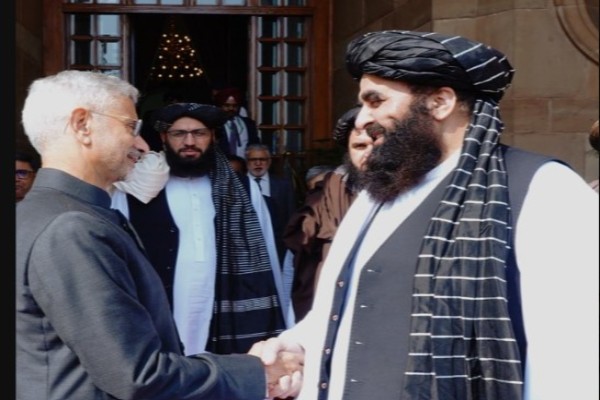
India on Tuesday announced the restoration of its mission in Kabul from a “technical office” to a fully functioning Embassy of India, marking a key shift in its diplomatic approach toward Afghanistan.
The move follows the recent visit of Afghan Acting Foreign Minister Amir Khan Muttaqi to New Delhi, facilitated by a UN travel waiver, and signals India’s intent to re-engage directly with the Taliban-led administration.
India had downgraded its diplomatic presence in 2021 after the Taliban seized control of Kabul, reopening a limited “technical mission” in 2022 to oversee humanitarian assistance. The restoration to full embassy status comes after months of quiet negotiations and reflects India’s effort to balance humanitarian and strategic imperatives in Afghanistan.
Officials said India’s focus will remain on developmental aid, trade facilitation, and regional connectivity, even as it continues to withhold formal recognition of the Taliban regime. The engagement model mirrors India’s “functional diplomacy” approach seen in its dealings with other non-recognised governments such as Myanmar and Taiwan.
A key driver of the move is India’s push to revive trade and transit links through Afghanistan, long seen as a gateway to Central Asia. With Pakistan continuing to block overland routes, India views closer coordination with Kabul as essential to accessing markets and resources in the wider region. The Chabahar Port in Iran remains central to this plan, though progress has been slowed by U.S. sanctions.
The Turkmenistan-Afghanistan-Pakistan-India (TAPI) gas pipeline project was also revived during Muttaqi’s visit, with both sides agreeing to explore steps toward implementation. The Taliban has invited Indian firms to invest in Afghanistan’s mining sector, which holds significant reserves of lithium, copper, and iron ore critical to India’s industrial supply chains.
Afghan traders, meanwhile, are keen to restore access to Indian markets for traditional exports such as dried fruits, carpets, and pharmaceuticals, disrupted since 2021 due to banking and air cargo constraints.
India’s decision also underscores a strategic calculation amid growing Chinese influence in Afghanistan through Belt and Road projects and mineral concessions. By restoring its embassy, New Delhi aims to maintain its development footprint, safeguard investments exceeding $3 billion, and ensure a voice in regional frameworks involving Iran, Central Asia, and Russia.
Both sides also discussed counterterrorism cooperation, with the Taliban reiterating assurances that Afghan territory would not be used for activities against India.
The restoration of the embassy marks a calibrated diplomatic re-entry for India—one that blends pragmatic engagement with strategic caution as it seeks to protect its interests in a rapidly shifting regional landscape
- Huma Siddiquihttps://stratnewsglobal.com/author/huma_siddiqui/
- Huma Siddiquihttps://stratnewsglobal.com/author/huma_siddiqui/
- Huma Siddiquihttps://stratnewsglobal.com/author/huma_siddiqui/
- Huma Siddiquihttps://stratnewsglobal.com/author/huma_siddiqui/




